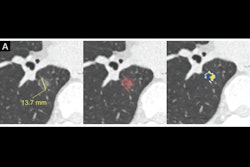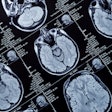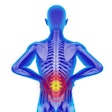More in Home
Kidneys appear to tolerate Lu-177 treatments
December 19, 2024
Higher Medicaid-to-Medicare reimbursement ratios boost imaging use
December 19, 2024
AI algorithm 'harmonizes' brain MRI data from different scanners
December 18, 2024
Recommendations address AI bias, data transparency
December 18, 2024
AdvaMed applauds House Task Force on AI report
December 18, 2024
African American men respond more favorably to Ra-223 therapy
December 17, 2024
What radiology trainees should know heading into 2025
December 17, 2024
Solis acquires San Antonio, TX imaging centers
December 16, 2024
PET visualizes acute graft vs. host disease
December 16, 2024
CBD eases scan-related anxiety in breast cancer patients
December 16, 2024
Minimally invasive spine surgeries reduce long-term opioid use
December 13, 2024

























